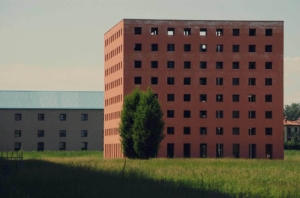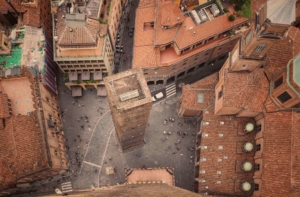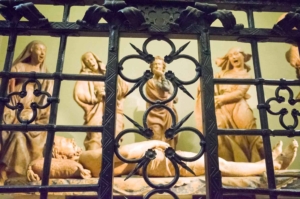Certosa cemetery in Bologna: how to plan your visit
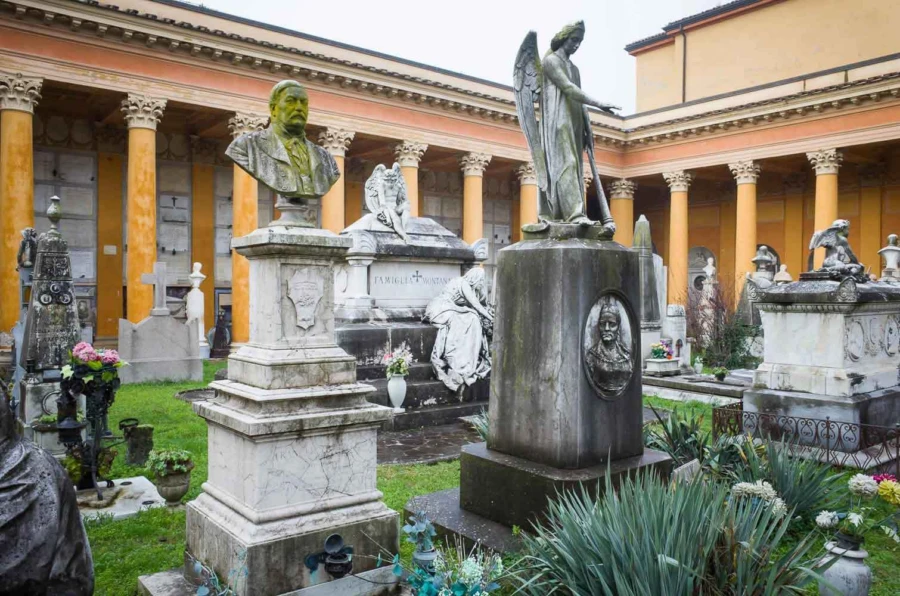
It may sound a macabre suggestion, but Certosa Cemetery is one of the most interesting museums in Bologna.
A silent one, huge but without indications and a souvenir store: a hidden gem that you should visit.
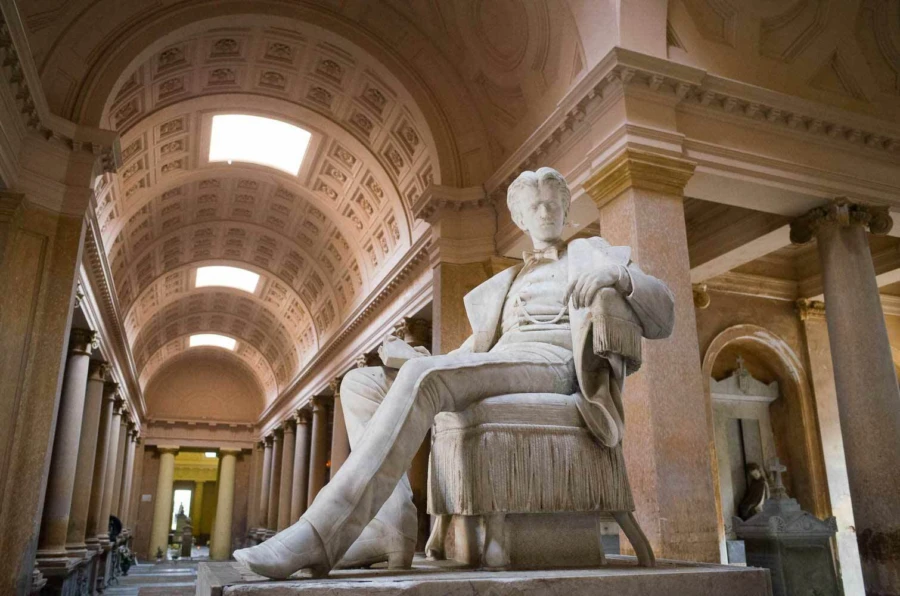
The elegant statue of Enea Cocchi, a young man disappeared in 1867
Why visit Certosa cemetery
Certosa di Bologna is one of the largest and oldest cemeteries in Europe, considered by many as one of the wonders of the city and one of the best museums in Bologna.
It was founded in 1801 on the ruins of an ancient monastery of Certosini dating from the 14th century, but before that, this place was chosen by Etruscan to bury their expired.
Since the 19th century, important people visited la Certosa, like Lord Byron, Charles Dickens, and Sigmund Freud.
If you are on a budget trip, visiting the cemetery is also a free activity to do in Bologna.
Your itinerary in the Certosa
My suggestion?
Just walk around and follow your instinct to explore these magnificent buildings.
Get lost between the porticoes, the wide vaults, and the memorials.
Find the different styles of sculptures and graves, classic, liberty, and even rationalist.
Stroll around this little city that recalls, with the unfolding of its arcades, the real city outside its walls.
You don't have a lot of time?
Just focus on Cloister VII and III, the ones with the most important groups of statues, Galleria degli Angeli and Sala del Colombario.
A must-visit is also The Magnani Cell, with a bronze sculpture on a blue mosaic by Pasquale Rizzoli, a fine example of Italian Liberty style.
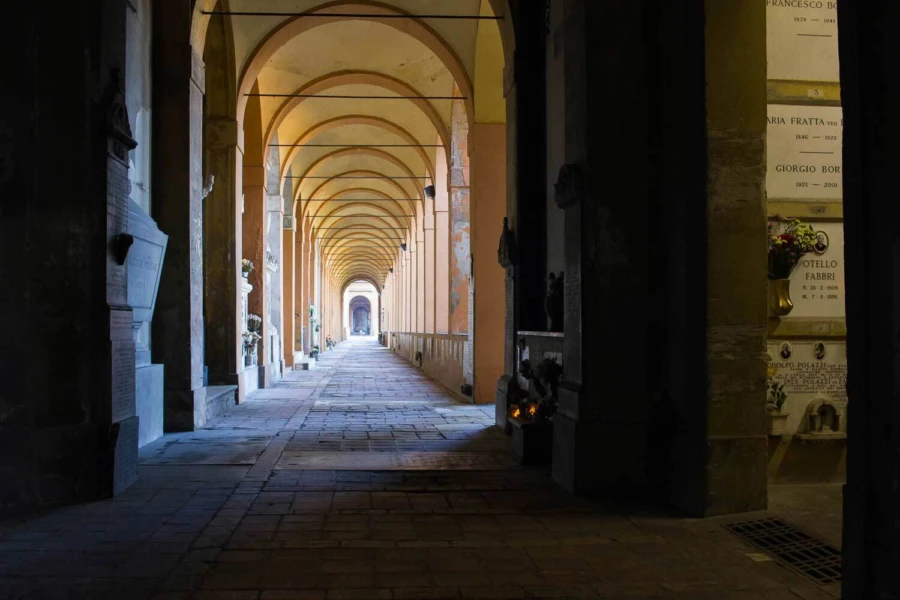
Certosa cemetery is full of porticoes like all Bologna
Certosa's most famous graves
You can also decide to visit the graves of important people for Italian and Bolognese history.
Who is buried in Bologna?
The painter Giorgio Morandi, the poet Giosue Carducci, the composer Ottorino Respighi, the Polish army general Grabinski, the founders of Maserati and Ducati and the singer Lucio Dalla.
Don't miss a visit to the Ossuary Monument for Partisan Soldiers of WWII, including the grave of the partisan Irma Bandiera.
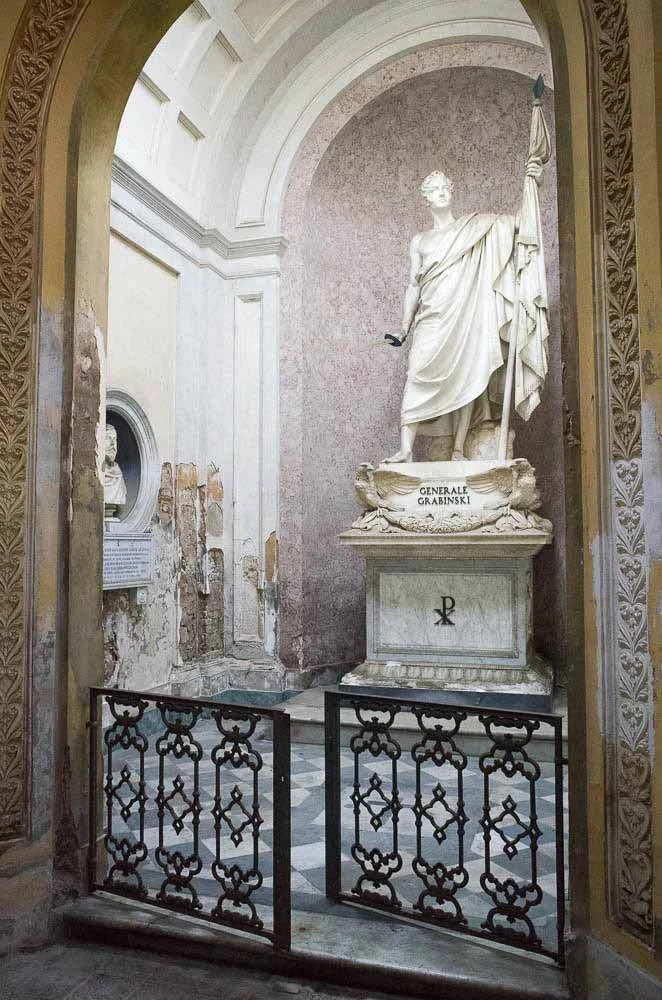
Polish army General Grabiski monument grave
Certosa cemetery is almost all indoor, so it's also a perfect activity to do in Bologna with the rain.
During spring and summertime, Certosa is also the place for concerts, theatre plays and guided tours.
How to arrive at Certosa cemetery
Certosa cemetery is in the west part of Bologna, in a big area between Via Tolmino and Via A. Costa.
There are many entrances, but the one you should use is to visit the monumental cemetery is located at the end of the portico that starts at Meloncello arch and runs along with Dall'Ara stadium (see map at the bottom).
You can walk from the city center (about 40 minutes from Piazza Maggiore) or take a bus like 14, 21, or 61 that leaves you at Stadio stop.
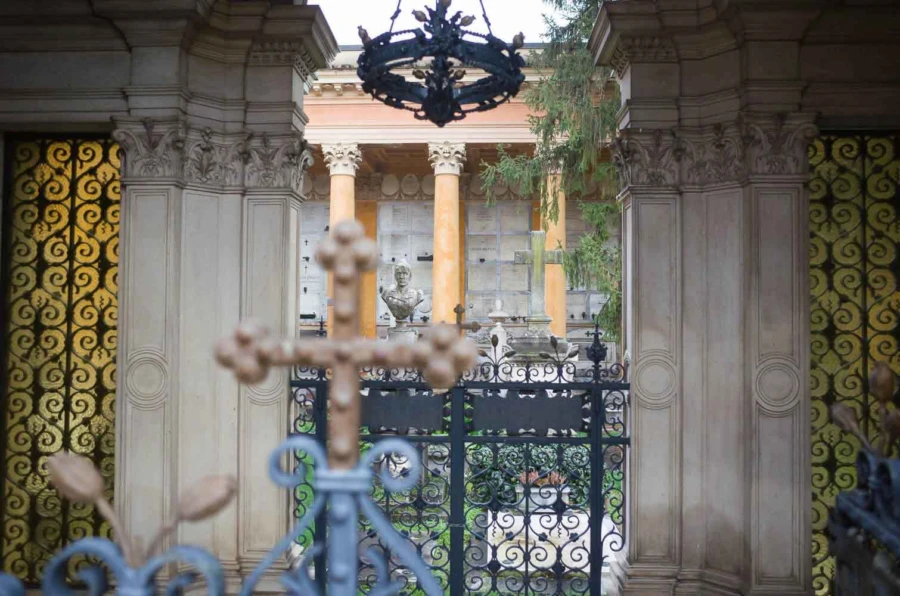
Info
Certosa Cemetery
Via della Certosa 18, Bologna
www.certosadibologna.it
Map of the cemetery
Opening time:
- From November 3rd to February 28th every day from 8 am to 5 pm
- From March 1st to November 2nd every day from 7 am to 6 pm
